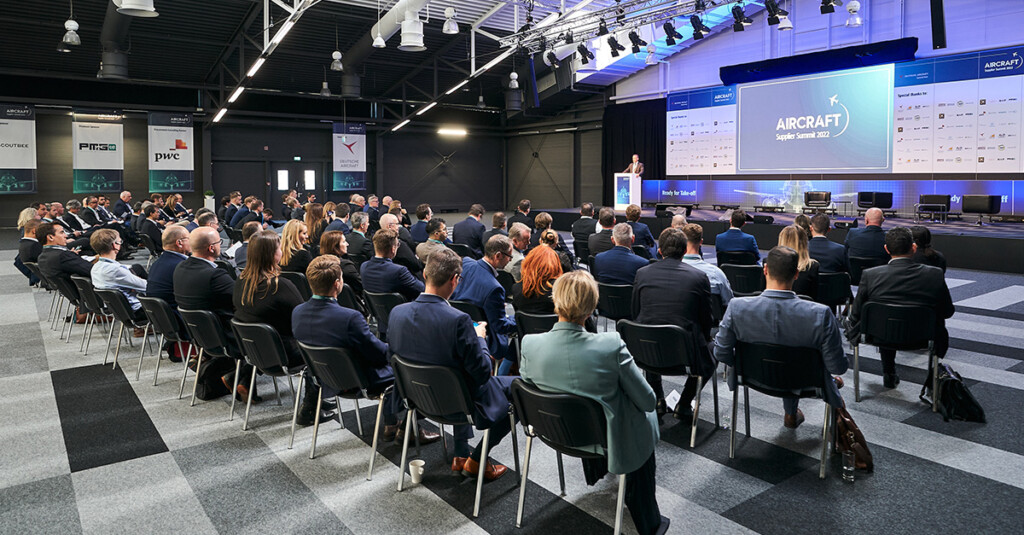Skip to content
It's always important to take a look back before moving forward. Doing this keeps us from that brain fog thing of wondering why we walked into the kitchen for the third time in a row and still forget to turn off the oven. In 2022 there was a lot, and even though 2020 and 2021 seemed like they morphed together to make one extra-long, exceptionally insane, and challenging year, 2022 felt like an extension of that in many ways. I'd liken it to a roller-coaster (and I mean the kind of broken down, roller-coaster at an abandoned amusement park with monsters chasing it, ala Scooby Doo) with the non-stop events, war, more covid and health issues, insane weather, strikes, raw material shortages, price jumps and still fearful of those murder hornets. Before Covid, when a random person would ask what I did for a living, and I said supply chain software for automotive, aerospace, and complex manufacturing, I'd immediately see their eyes glaze over and then dart around looking for a quick exit. Supply chain sounded boring or too complex, and even more, the software for it. "Kind of a specialty," I'd remark and smile to myself, as the average person had no idea just what pressure went into the day of a buyer or supplier in supply chain. Supply chains take center stageThen Covid hit, and supply chain was now a household term. Suddenly, I felt like I was in that 1979 EF Hutton TV commercial, except for the supply chain. People actually wanted to listen about supply chain software. In fact, I'd find myself engaged in long conversations about supply chain matters and essentially saving the world. Even my kids were talking about it. Especially when I'd come home from grocery shopping and I'd turn up with their favorite food or snack requests missing from the grocery store run. Topics would range from worker shortages, safety, illness, raw materials, strikes, printed packaging, inks, crops, and transportation, to name a few. I'd explain what I already knew and then try to figure out what exactly was going on.As a dabbler in creative writing, I couldn't even make some of this stuff up. It was sometimes perplexing why some things just went missing for months and not others. But we muddled through like everyone else; people and companies got creative and resourceful. It was impressive to watch it unfold. By the end of 2022, even with all the chaos, things started to feel normal-ish again, and the world opened up further. Companies needed solutions, and my calendar was booked up for introductions and demos. Supply chain was up front and center now. By fall, I was also able to attend quite a few sold-out industry conferences as well. Speakers, experts, and attendees clamored; we had all been cooped up for way too long and needed desperately to connect the way we used to. We had a thirst for more knowledge about the state of supply chains and thoughts on the future. The vibes were much more different; it was high energy, focused, with a scent of desperation for real change. From meetings with prospective customers, customers, and industry conferences, what was once a mere "pie in the sky" wish of real supply chain collaboration was now, even more, a much-needed reality. We needed to propel supply chain management into the future, not just to be efficient and manageable but to sustain the lives of companies.2022 needs recapResiliency"Resiliency" is a term that has been tossed around before the pandemic, but in 2022 I found it to be the theme of the year when it comes to supply chain. However, resiliency doesn't necessarily mean the same thing for everyone. The list goes on: strong supply chain, access to inventory, reduced costs, backup suppliers, and insight into trends, issues, and challenges. So, what does it mean to have a "resilient supply chain" to you? TransparencyEven before the global pandemic, supply chains were volatile. In the complex manufacturing world, buyers/planners would forecast and put their orders into suppliers around the globe, and suppliers would accept them. For automotive and aerospace, that could be a year-plus lead time or even longer. Until the promise date arrives and there are no parts, or perhaps if an advance ship notification (ASN) is generated, there is literally no status on the supplies that are ordered. When a part is missing or late, chaos ensues, right? Things like production shutdown can occur, late orders, and essentially, ultimately, affect the bottom line. VisibilityOne of the biggest things I heard over and over again at conferences and from prospects was having greater "visibility" into their supply chains all the way to tier N. The statement, "we don't know who our suppliers are, " became a constant concern. Of course, the goal is to plan better, and especially OEMs and top-tier suppliers want the ability to know things even before their suppliers do in order to plan better and make informed proactive decisions. SustainabilityI remember when sustainability was the buzzword back in the 90s. I worked on quite a few sustainability statements for customers. Everyone seemed to have a goal about sustainability by the year 2020. That came and went, and the global pandemic made us go backward on this initiative, more disposable everything, personal protective eqipment (PPE), shortages, expedited orders, and transit. After all this, we are trying to get back on course to reduce our carbon footprint while being profitable. Stay tuned for more tips, tricks, ideas, and ramblings.

Co-organized by the Berlin Institute Supply Chain Management, the German OEM Deutsche Aircraft hosted the first Aircraft Supplier Summit on November 15 and 16, 2022 at Leipzig Airport.Leipzig is the chosen final-assembly-line (FAL) location for the D328eco, the groundbreaking, forward-looking platform building upon the legendary Dornier Do328 aircraft, for which Deutsche Aircraft is the type certificate holder. The D328eco will rely on Sustainable Aviation Fuel (SAF) as transition to zero-emission flying. Planned by 2030, also hydrogen propulsion will be explored. The FAL construction is planned to start in 2023 already.Key topics of this summit wereHow Deutsche Aircraft and its partners shape the future of sustainable flyingCreating supply chain resilience in a VUCA* worldTechnology-enabled supplier collaborationESG* as a new mindset, towards improved sustainabilityPartnership between Deutsche Aircraft and its suppliersImproving supplier collaboration & supply chain resilienceIt is impossible to mention all the highly interesting keynotes with the all the valuable insights. Therefore, just some highlights from SupplyOn perspective:BoostAeroSpace CEO Rodolphe Péricat explained how the organization contributes to technology-enabled supplier collaboration. Building on a strong industry community, it addresses increased security needs and governs dedicated supplier collaboration platforms, including SupplyOn AirSupply.Deutsche Aircraft has chosen SupplyOn as strategic partner in order to digitally manage collaboration with suppliers and enable structured communication.ThyssenKrupp Aerospace CEO Patrick Marous shared how they foster supply chain resilience with their Supply Chain Control Tower. By considering resistance, forecast, avoidance, inventory and capacity buffers it secures the company’s ability to deliver in a VUCA world.One highlight of the summit for sure was the awarding & contract signature ceremony live on stage for two new suppliers of Deutsche Aircraft: Bucher Leichtbau from Fällanden, Switzerland, and Elbe Flugzeugwerke (EFW), Dresden. The latter is also a SupplyOn customer for AirSupply.Great forum, to be continuedThe Aircraft Supplier Summit was a unique opportunity to exchange with decision makers of Deutsche Aircraft. It was also a good forum for face-to-face discussions with strategic partners and suppliers.To wrap up, attendees were asked to provide their feedback on the event. Among the key take-ways mentioned were insights on supply chain resilience, sustainability, and technology as an enabler. But also partnership and inspiration were important attributes of the conference.The next Aircraft Supplier Summit is already scheduled: Nov 7 and 8, 2023, again in Leipzig. See you then! --*VUCA: volatility, uncertainty, complexity, ambiguity** ESG: environment, social, governance
